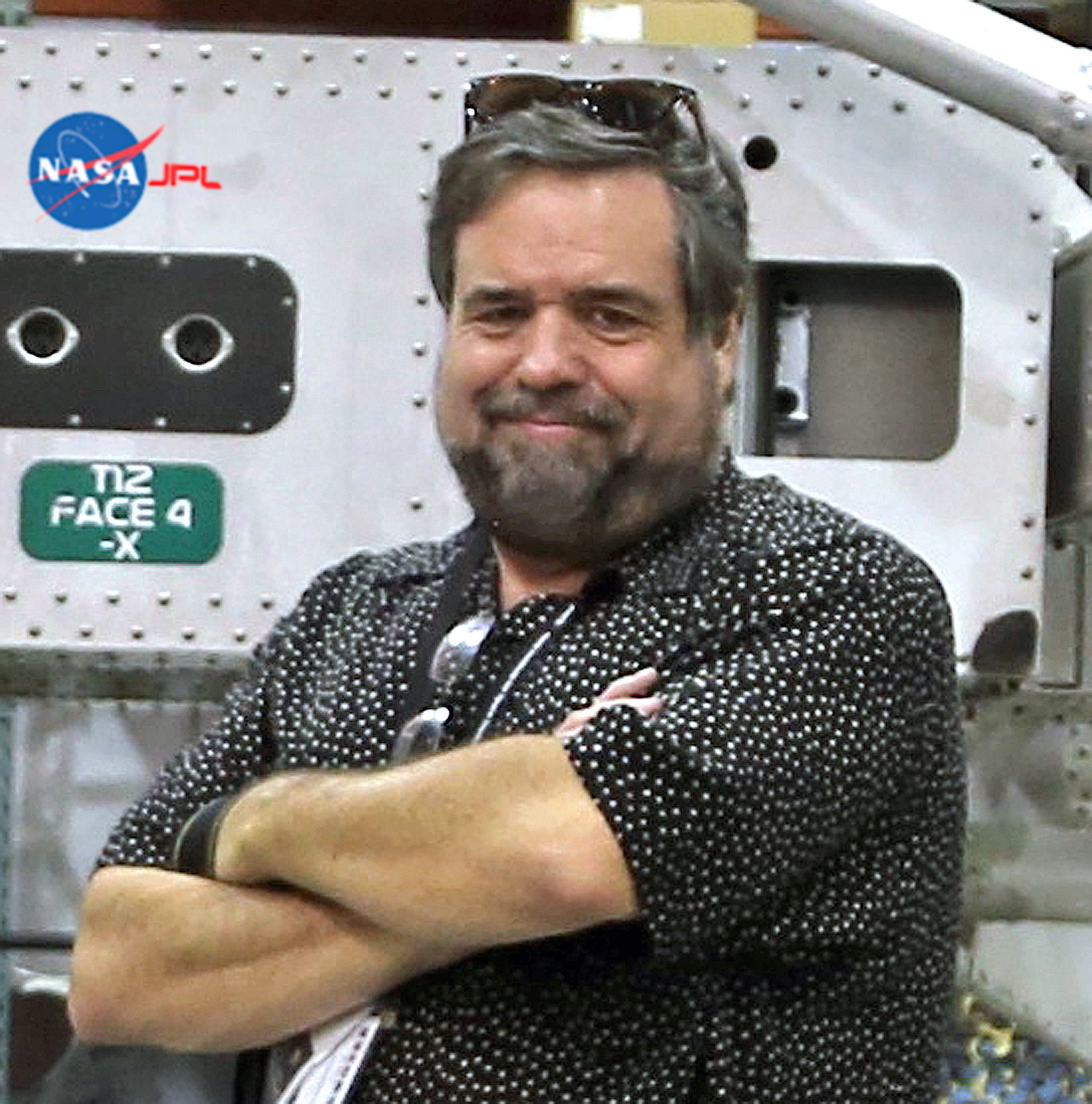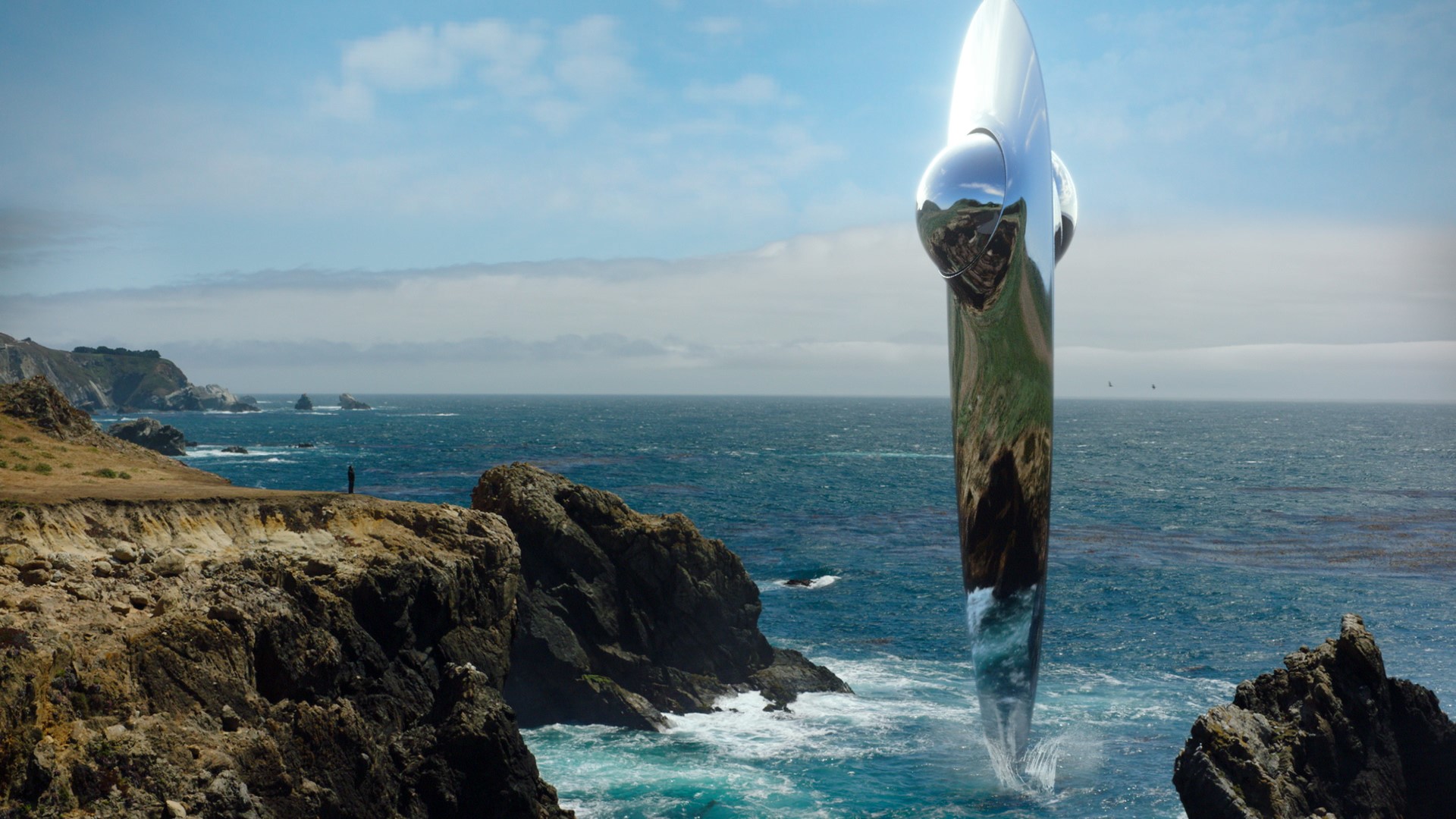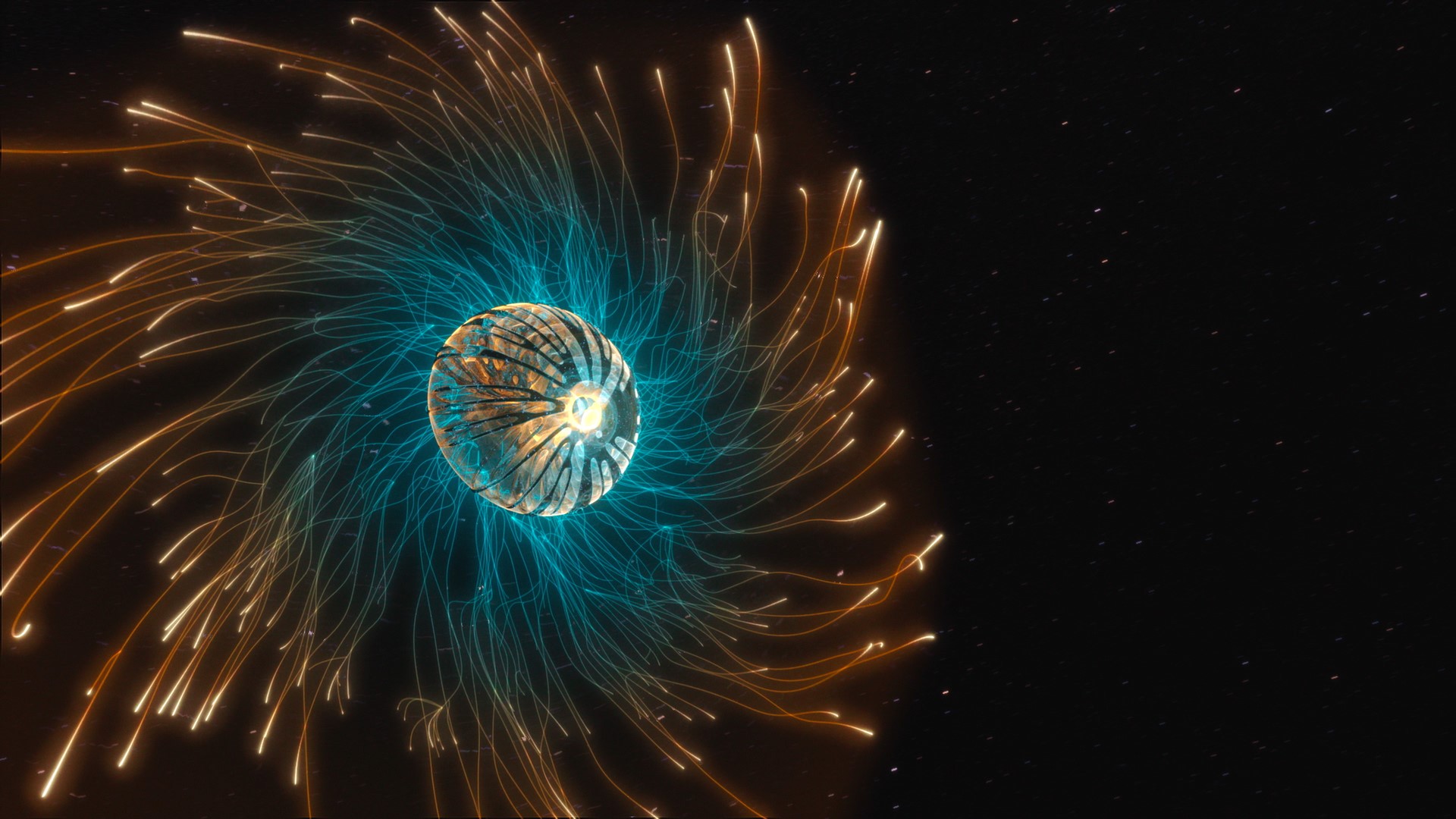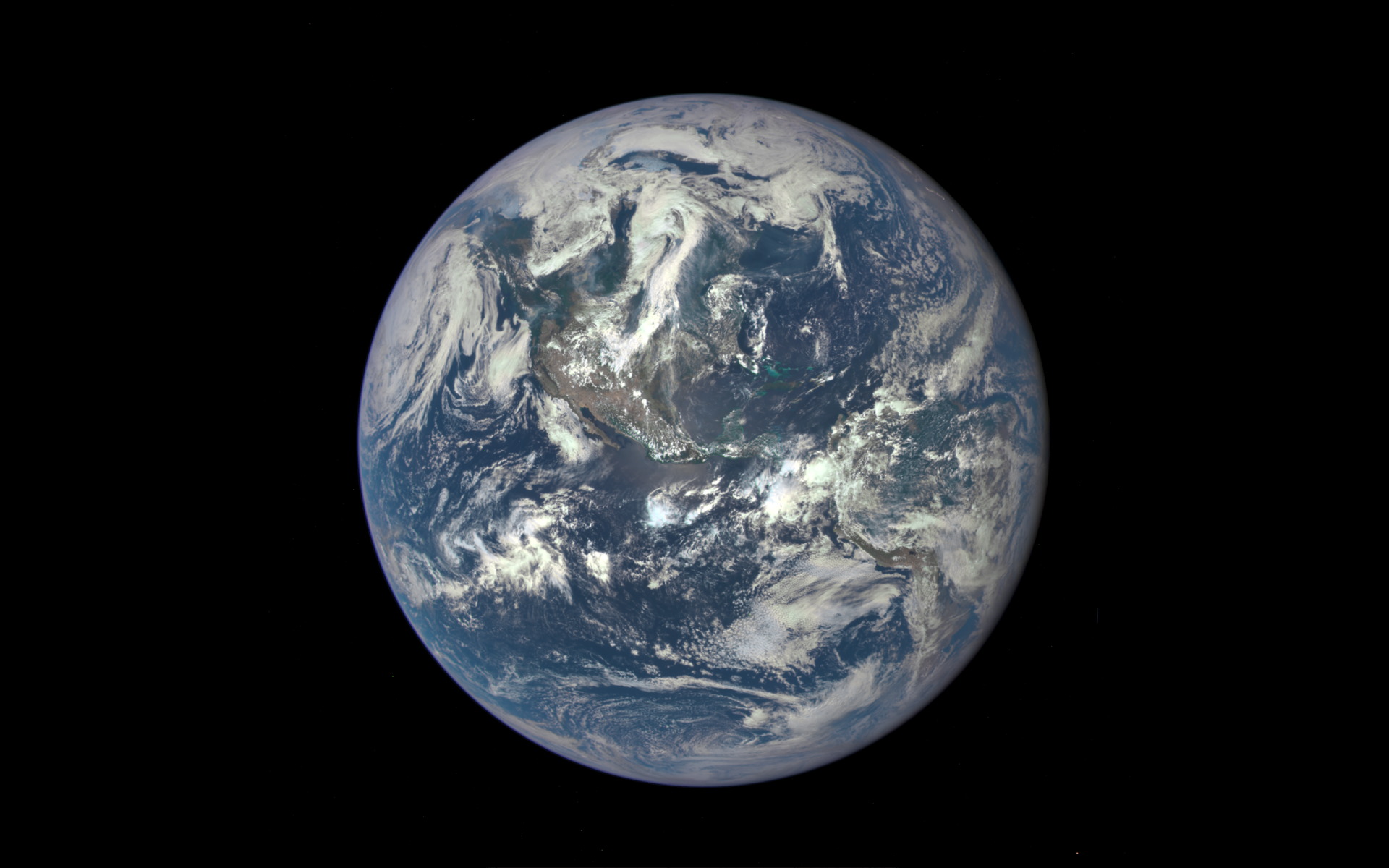'Cosmos: Possible Worlds' takes us back into a universe of science
Breaking space news, the latest updates on rocket launches, skywatching events and more!
You are now subscribed
Your newsletter sign-up was successful
Want to add more newsletters?

Delivered daily
Daily Newsletter
Breaking space news, the latest updates on rocket launches, skywatching events and more!

Once a month
Watch This Space
Sign up to our monthly entertainment newsletter to keep up with all our coverage of the latest sci-fi and space movies, tv shows, games and books.

Once a week
Night Sky This Week
Discover this week's must-see night sky events, moon phases, and stunning astrophotos. Sign up for our skywatching newsletter and explore the universe with us!

Twice a month
Strange New Words
Space.com's Sci-Fi Reader's Club. Read a sci-fi short story every month and join a virtual community of fellow science fiction fans!
A new season of the rebooted television show "Cosmos" arrives on screens today (March 9) after a one-year delay.
As in 2014's second season, the third installment of "Cosmos" is hosted by American Museum of Natural History astronomer Neil deGrasse Tyson. The original series, which aired in 1980, featured Cornell University astronomer Carl Sagan and introduced countless people to the wonder of space science, and the reboot, which airs on the National Geographic channel, is carefully designed to do the same.
(The release of the new third season of "Cosmos" was delayed for a year while National Geographic investigated claims of sexual misconduct by the show's host. The network eventually dismissed the allegations and Tyson apologized publicly for any misunderstanding of his behavior.)
"Part of the DNA of 'Cosmos' is its capacity to blend the science with storytelling," Tyson said during a media event held by the Television Critics Association in California in January. "We all know storytelling from the beginning of our species. We all know science because you learned it in your science textbooks. Previously, when you wanted to communicate science … it felt very lecture-y." The new "Cosmos" is not lecture-y. It is easily digested science backed by great visuals.
Related: The best sci-fi TV shows on Netflix
The new season consists of 13 episodes, with subjects including the fascinating story of the unlikely originator of the rendezvous concept that enabled the Apollo lunar landings, the 20-year Cassini mission to Saturn and a visit to the New York World's Fair of 2039.
The Cassini episode in particular touches the heart: The show quite lyrically presents the end of the probe's long life, when it was directed to destroy itself in Saturn's atmosphere. This sort of creative, daring storytelling is at the core of the success of "Cosmos" and is bolstered by lavish, feature-quality visual effects.
Breaking space news, the latest updates on rocket launches, skywatching events and more!
"We have animations, we have visualizations, and there's music behind it," Tyson said. "These are tools that have been well known in the industry, but no one ever thought to put it to science. That's what 'Cosmos' does."
The result is quite moving, as we see a cluster of mission scientists barely holding back tears as their beloved spacecraft plunges to its demise.
In a later interview, Ann Druyan, Sagan's widow and co-writer on the original series, said that beneath the show's overall theme of exploring the history of our understanding of the universe, there is another strong motif — that of the relevance and importance of science in our lives and culture.
Druyan said she feels that in the last few years, there has been a "flight from reality" in how we deal with science. She was frank in her assertion that there is widespread "loss of respect for science" and that "deception" about these topics has become "business as usual."
That attitude permeates both the public and institutions, she said. Working on the original series, "Carl [Sagan] and I had many differences with our government, but we felt tremendous pride in the achievements of the space program and what it was doing," she said. "Now something has really changed in the government's attitude towards science, which was once its shining jewel. It's hostile and cynical. When anybody is hostile and cynical about our most powerful tool for apprehending reality, you know they're up to no good. 'Cosmos' is our way of standing up for the awesome power of science."
She credited executive producer Seth MacFarlane with getting the reboot of the show on the air. "There would be no second season of 'Cosmos' without Seth … I'd been trying for years to get a new 'Cosmos' produced, and it wasn't until I met Seth that there was a champion for 'Cosmos.'"
The "Cosmos" team insists that good storytelling is the key to enlightening and engaging the public, according to producer Jason Clark. "We're not actually taking you out to space," he said, "so we have to visualize that in a way that feels profound and real, but that doesn't lose a connection with the audience in the art of storytelling."
He described Sagan's performance in the original series as akin to a fireside chat and said that Tyson has embraced the same narrative style.
"I feel really in this season that [Tyson] delivered this incredible kind of connected, simple, one-on-one capability that we could support with visuals," Clark said, by taking viewers to "the far reaches of the universe or down into the quantum level. And when you go there, it's transformative." The team emulated the visual storytelling style of the best big-budget fiction films, he said, with the added benefit that "this is all real … it's true, so it's quite powerful."
Tyson brings his own unique style to this new iteration of "Cosmos," one that is well suited to increasingly cynical 21st-century viewers. When asked if he wrote in a different voice for Tyson than for Sagan, executive producer Brannon Braga said no. "It's in 'Cosmos's' voice," he said. "Neil's ability to take those words and make them naturalistic and connect with an audience on the camera is a perfect combination and resulted in success."
Tyson and the writers are dedicated to preserving the overall tone that Sagan and Druyan established in the original series, the team said, and rekindling a faith in science to answer the big questions that underlie "Cosmos." They have done so with grace and dignity, something rarely achieved in this kind of television, and one that has the potential to unite the viewing audience.
"Rather than hit people over the head for their beliefs, we present the notion that if we're going to survive … at some point we have to establish what is true and what is not," Tyson said. "If you understand that, you'll be in a much better position to make decisions that affect the survival of humanity. It's an appeal for all of us to gather together and imagine the future as a community — not as a country, not as a faction, but as a species."
"Cosmos" premieres on the National Geographic channel on March 9 at 8 p.m. ET/9 p.m. CT and will be reprised on the Fox television network this summer.
- Carl Sagan: Cosmos, pale blue dot & famous quotes
- Book excerpt: 'For Small Creatures Such As We' by Sasha Sagan
- Sasha Sagan dives into science, space and spirituality in new book
Follow us on Twitter @Spacedotcom and on Facebook.
OFFER: Save at least 56% with our latest magazine deal!
All About Space magazine takes you on an awe-inspiring journey through our solar system and beyond, from the amazing technology and spacecraft that enables humanity to venture into orbit, to the complexities of space science.

Rod Pyle is an author, journalist, television producer and editor in chief of Ad Astra magazine for the National Space Society. He has written 18 books on space history, exploration and development, including "Space 2.0," "First on the Moon" and "Innovation the NASA Way." He has written for NASA’s Jet Propulsion Laboratory, Caltech, WIRED, Popular Science, Space.com, Live Science, the World Economic Forum and the Library of Congress. Rod co-authored the "Apollo Leadership Experience" for NASA's Johnson Space Center and has produced, directed and written for The History Channel, Discovery Networks and Disney. For more information on the National Space Society, go to nss.org



